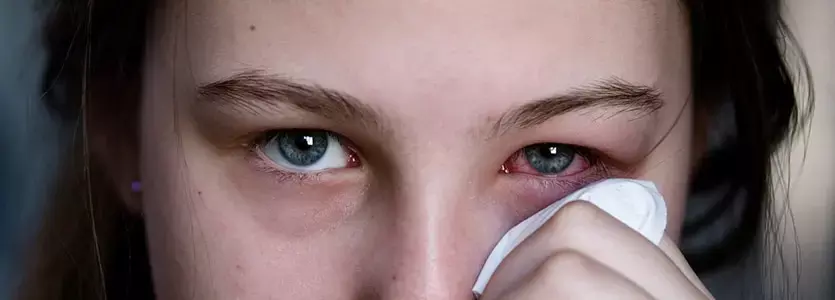- Home
- Medical news & Guidelines
- Anesthesiology
- Cardiology and CTVS
- Critical Care
- Dentistry
- Dermatology
- Diabetes and Endocrinology
- ENT
- Gastroenterology
- Medicine
- Nephrology
- Neurology
- Obstretics-Gynaecology
- Oncology
- Ophthalmology
- Orthopaedics
- Pediatrics-Neonatology
- Psychiatry
- Pulmonology
- Radiology
- Surgery
- Urology
- Laboratory Medicine
- Diet
- Nursing
- Paramedical
- Physiotherapy
- Health news
- Fact Check
- Bone Health Fact Check
- Brain Health Fact Check
- Cancer Related Fact Check
- Child Care Fact Check
- Dental and oral health fact check
- Diabetes and metabolic health fact check
- Diet and Nutrition Fact Check
- Eye and ENT Care Fact Check
- Fitness fact check
- Gut health fact check
- Heart health fact check
- Kidney health fact check
- Medical education fact check
- Men's health fact check
- Respiratory fact check
- Skin and hair care fact check
- Vaccine and Immunization fact check
- Women's health fact check
- AYUSH
- State News
- Andaman and Nicobar Islands
- Andhra Pradesh
- Arunachal Pradesh
- Assam
- Bihar
- Chandigarh
- Chattisgarh
- Dadra and Nagar Haveli
- Daman and Diu
- Delhi
- Goa
- Gujarat
- Haryana
- Himachal Pradesh
- Jammu & Kashmir
- Jharkhand
- Karnataka
- Kerala
- Ladakh
- Lakshadweep
- Madhya Pradesh
- Maharashtra
- Manipur
- Meghalaya
- Mizoram
- Nagaland
- Odisha
- Puducherry
- Punjab
- Rajasthan
- Sikkim
- Tamil Nadu
- Telangana
- Tripura
- Uttar Pradesh
- Uttrakhand
- West Bengal
- Medical Education
- Industry
Eczema Treatment linked with Development of Conjunctivitis, reveals study

Atopic dermatitis (AD) is a common, chronic, inflammatory skin condition that affects up to 25% of children and 5% of adults worldwide. In a recent case report, researchers have reported that treatment of palpebral and facial eczemas linked to conjunctivitis development. The research has been published in the Journal of the European Academy of Dermatology and Venerology on March 03, 2021.
Ocular disorders, including allergic conjunctivitis, are common in patients with atopic dermatitis (AD). In most dupilumab AD trials, dupilumab-treated patients had higher conjunctivitis incidence than those receiving placebo. To further evaluate this association, researchers assessed 277 patients affected by moderate-severe forms of atopic dermatitis for the treatment with dupilumab. Among 277 patients, 27% presented with facial seborrheic-like dermatitis, and 26% presented with facial eczema without signs of seborrheic dermatitis. They were treated with an antifungal corticosteroid cream, itraconazole tablets, and tacrolimus 0.1% ointment. The researchers prescribed a trehalose/hyaluroate tear substitute to hydrate conjunctival mucosa to all patients.
Key findings of the study were:
- Upon analysis, the researchers identified 20 cases of conjunctivitis (incidence rate, 7.2%) among which, 6 cases reported nonadherence to preventive therapy and were excluded, resulting in an incidence rate of 5%.
- They also observed other ocular outcomes such as nonspecific keratoconjunctivitis associated with dry eye (n=19) and follicular conjunctivitis associated with limbitis (n=1).
- They further noted a history of prior conjunctivitis in 6 patients (42.8%).
- They also noted that the mean EASI score of patients with conjunctivitis was 37, which was higher than the mean EASI score of the total (N=277) cohort.
- The mean time of conjunctivitis onset from the start of therapy was six months (time-lapse, 3 to 14 months).
- Patients with conjunctivitis were treated with cortico-antibiotic eye drops and were recovery except for 2 patients.
- The patient with follicular conjunctivitis required cyclosporine ophthalmic drops.
The authors concluded, "A possible association between facial eczema and conjunctivitis is probable, but more data are needed," and further added, "It is likely that prophylactic therapy, based on trehalose/hyaluroate tear substitute, associated with the treatment for palpebral and facial eczema, worsened dry eye and consequently, conjunctivitis."
For further information:
Medical Dialogues Bureau consists of a team of passionate medical/scientific writers, led by doctors and healthcare researchers. Our team efforts to bring you updated and timely news about the important happenings of the medical and healthcare sector. Our editorial team can be reached at editorial@medicaldialogues.in.
Dr Kamal Kant Kohli-MBBS, DTCD- a chest specialist with more than 30 years of practice and a flair for writing clinical articles, Dr Kamal Kant Kohli joined Medical Dialogues as a Chief Editor of Medical News. Besides writing articles, as an editor, he proofreads and verifies all the medical content published on Medical Dialogues including those coming from journals, studies,medical conferences,guidelines etc. Email: drkohli@medicaldialogues.in. Contact no. 011-43720751


